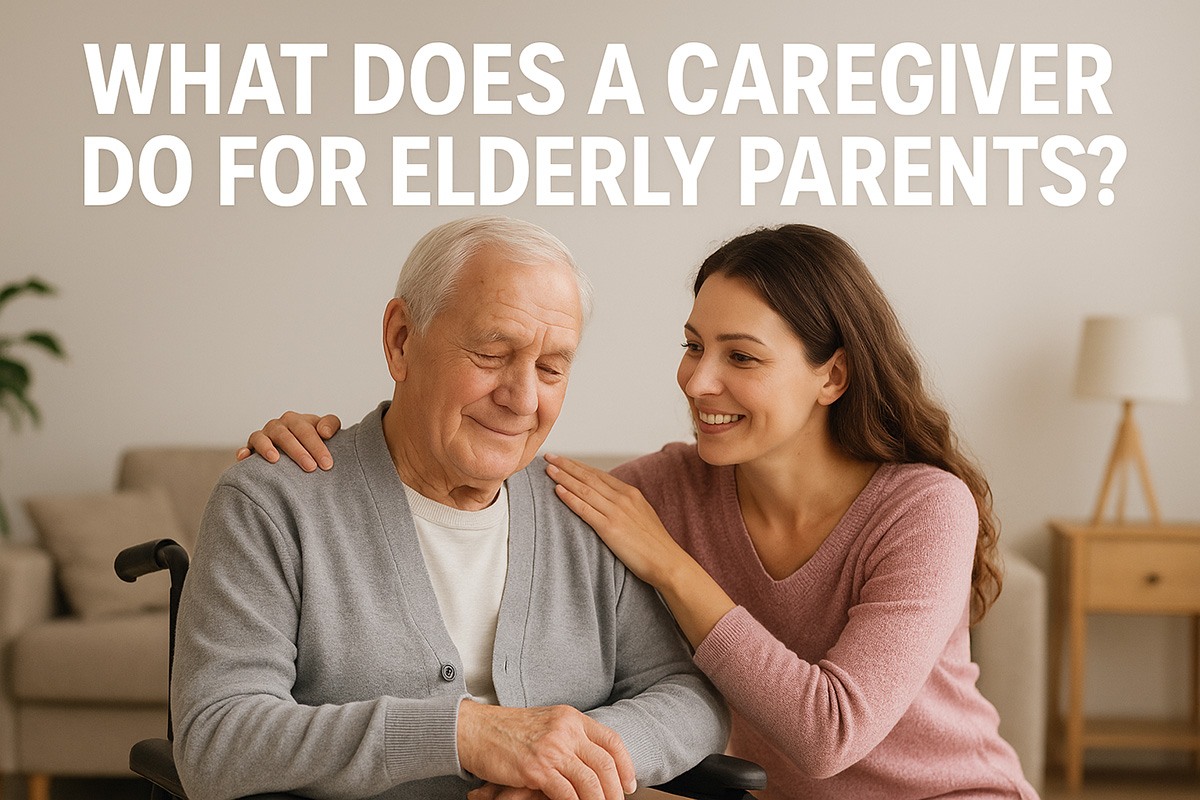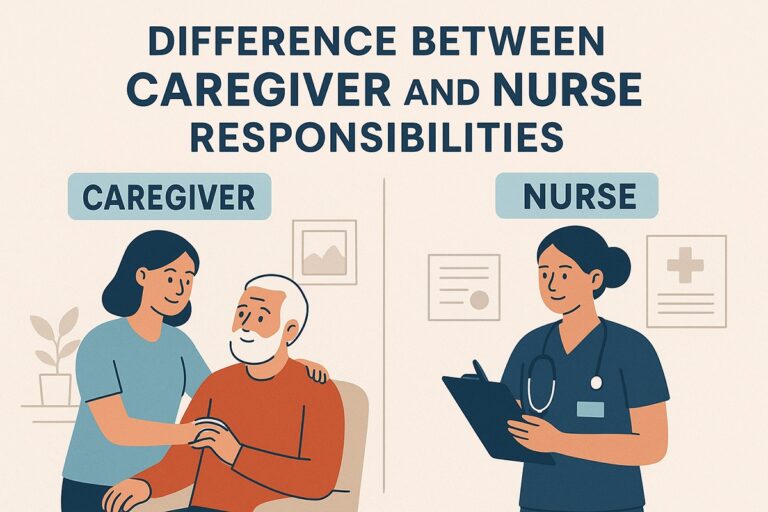A caregiver for elderly parents provides physical assistance, emotional support, household management, and healthcare coordination to ensure aging loved ones can live safely, comfortably, and with dignity at home or in care facilities.
Caregiving is one of the most selfless responsibilities an adult child can take on. As parents age, their ability to manage daily tasks often declines, and stepping into the caregiver role can make a significant difference in their quality of life. But what exactly does caregiving involve? Let’s break it down.
Daily Responsibilities of a Caregiver for Elderly Parents
1. Personal Care Assistance
Caregivers often help with activities of daily living (ADLs) such as:
- Bathing and grooming
- Dressing
- Mobility and walking support
- Toileting and incontinence care
- Feeding assistance when needed
These tasks ensure that elderly parents maintain hygiene, safety, and dignity even as physical abilities decline.
2. Household Management
Beyond personal care, caregivers often take on instrumental activities of daily living (IADLs), including:
- Preparing nutritious meals
- Grocery shopping and errands
- Managing laundry and housekeeping
- Paying bills and organizing schedules
- Providing transportation to appointments or social events
This type of support helps seniors live more independently at home.
3. Medication and Health Management
One of the most important caregiver responsibilities is healthcare coordination, which may involve:
- Managing medication schedules and dosages
- Keeping track of doctor’s appointments
- Monitoring chronic conditions (e.g., diabetes, hypertension)
- Communicating with healthcare providers
- Recognizing early warning signs of health issues
Caregivers are often the first line of defense when it comes to spotting health changes.
4. Emotional and Social Support
Loneliness and isolation are common among elderly parents. Caregivers provide:
- Companionship and conversation
- Emotional reassurance during difficult times
- Encouragement to stay socially engaged
- Activities that stimulate the mind (puzzles, reading, hobbies)
This emotional bond is just as important as physical care.
5. Advocacy and Decision-Making
Caregivers often act as advocates for elderly parents by:
- Navigating healthcare and insurance systems
- Understanding legal documents like power of attorney or advance directives
- Making informed decisions in emergencies
- Ensuring the senior’s wishes are respected
This role requires trust, patience, and careful planning.
Signs That Elderly Parents May Need a Caregiver
You may need to step in as a caregiver if you notice:
- Frequent falls or balance issues
- Missed medications or medical appointments
- Difficulty managing meals, hygiene, or bills
- Signs of depression, anxiety, or isolation
- Increased forgetfulness or early dementia symptoms
Recognizing these early can help prevent crises and ensure timely care.
Challenges of Being a Caregiver for Elderly Parents
While rewarding, caregiving also comes with challenges:
- Emotional stress and burnout
- Balancing caregiving with work and family
- Financial strain from medical costs or reduced work hours
- Feelings of guilt when seeking outside help
That’s why it’s important for caregivers to take care of themselves too and seek support when needed.
Resources for Family Caregivers
If you are caring for elderly parents, here are resources that can help:
- Respite care services for temporary relief
- Local caregiver support groups (in-person or online)
- Nonprofits offering financial assistance and training
- Senior centers and community programs
- Professional in-home caregivers for additional support
Final Thoughts
So, what does a caregiver do for elderly parents? Caregivers provide everything from personal care and household support to medical management and emotional companionship. It’s a role that demands patience, empathy, and dedication—but it also brings the reward of knowing you’re making a difference in your parents’ lives.
If you are stepping into this role, remember: you don’t have to do it all alone. Tap into support systems, community resources, and professional services to make caregiving more sustainable for both you and your loved ones.
FAQs About Caregiving for Elderly Parents
Q1: What are the most common caregiver duties for elderly parents?
Caregivers help with daily activities like bathing, dressing, meals, medications, transportation, and emotional companionship.
Q2: How do I know when my elderly parent needs a caregiver?
Warning signs include falls, memory problems, difficulty managing daily tasks, or missed medications and appointments.
Q3: Can caregivers for elderly parents get paid?
Yes, depending on your location, programs like Medicaid, state caregiver stipends, or veteran benefits may provide financial compensation.
Q4: How can caregivers avoid burnout?
Practicing self-care, joining support groups, scheduling respite care, and setting boundaries are key ways to prevent caregiver burnout.
Q5: What’s the difference between a family caregiver and a professional caregiver?
Family caregivers are usually unpaid relatives providing care, while professional caregivers are trained, paid providers offering medical or personal assistance.



